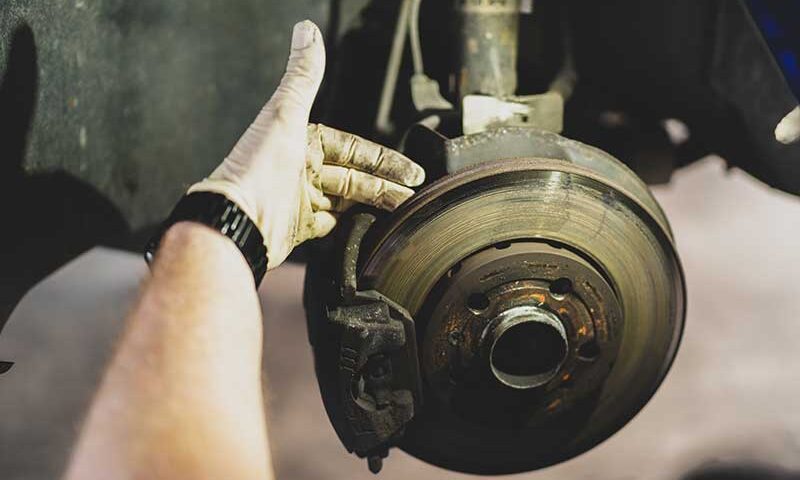Brake Care Basics Stay Safe on the Road

Coughing Engines Addressing Black Smoke Issues
January 13, 2024
Winter Car Care 101 Essential Tips for Cold-Weather Driving
March 10, 2024Your vehicle’s safety depends on properly functioning brakes. They not only make it easier to stop your automobile, but they also help you keep control when driving. Understanding the fundamentals of brake maintenance can help prevent accidents and save lives. In this article, we will go over the fundamentals of brake maintenance, assuring your safety on the road.
1. Recognize the Signs of Brake Problems
Being aware of the symptoms of brake difficulties can help you solve them before they worsen. Common indicators are:
- Unusual Noises: Squealing or grinding noises when braking may indicate worn brake pads.
- Reduced Responsiveness: If your brakes aren’t as responsive as they once were, or if the pedal “sinks” toward the floor, there could be a leak in the braking system.
- Pulling: If your automobile pulls to one side while braking, there could be a problem with the brake linings or a foreign object in the fluid.
- Vibration: A vibrating brake pedal usually indicates warped rotors.
2. Regular inspections and maintenance
Routine checks are essential to keep your brakes in good working order. Here’s what a routine brake inspection should include:
- Check for wear on your brake pads and shoes. If the thickness is less than 1/4 inch, replace them.
- Check the levels and condition of your brake fluid. To keep your braking system working properly, replace any dark or dirty fluid.
- Rotors and drums: Inspect for warping, grooves, and cracks. Significant wear may necessitate resurfacing or replacement.
3. Understand the Importance of Brake Fluid
The hydraulic braking system depends on brake fluid to function. It distributes the force generated when you press the brake pedal directly to the wheel hub. Over time, brake fluid can become polluted with water, diminishing its efficacy and possibly causing brake failure. Ensure that your brake fluid is checked and changed on a regular basis, as recommended by your car manufacturer.
4. Do Not Ignore the ABS (Anti-lock Braking System)
The ABS is essential for retaining vehicle control during rapid stops. If the ABS warning light turns on, get it examined right away. While ABS faults may not always imply a braking failure, they can cause problems with vehicle stability and stopping distances.
5. Select Quality Parts and Professional Service
When it comes to brake maintenance or repair, using high-quality parts and skilled service is essential. Brakes are not a place to cut corners. Inadequate parts or incorrect installation can jeopardize your vehicle’s safety.
Brake maintenance should not be disregarded. Regular inspections and maintenance are essential to maintaining your brakes in top condition and keeping you and your passengers safe on the road. Remember, if you notice anything strange about your brakes, have them checked by a professional right away. Safe driving begins with effective stopping. Stay informed, be cautious, and make sure your brakes are always road-ready!


